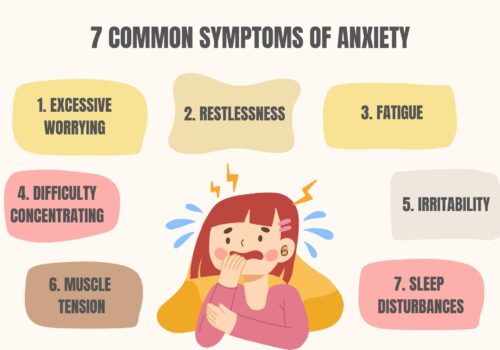Narcissistic Personality Disorder (NPD) was once considered more of a personality trait, but NPD is now recognized as a mental health condition. It is a condition characterized by a lack of empathy, arrogance, a false sense of self-importance, vanity, selfishness, and extreme self-centeredness. Narcissistic personality disorder was only recognized as a mental disorder in 1980 by the Diagnostic and Statistical Manual of Mental Disorders (DSM-5). It now has a fixed diagnosis, symptoms, and treatment.
What is Narcissistic Personality Disorder?
Narcissistic personality disorder can create several problems in one’s life. The basic reason for the symptoms of NPD is a person’s inflated ego and self-absorption. Such people reserve the right to their actions, and those around them are expected to cooperate irrespective of the consequences and problems that arise from such actions. NPD individuals are blatant attention seekers, often going out of their way to gain admiration. They lack empathy and the understanding to consider the feelings of others.
Those affected with a narcissistic personality disorder might harbor feelings of low self-esteem, are generally unhappy, and are often extremely disappointed when things do not go as they want them to. They tend to loathe those who do not give them the attention they think they deserve, and they get upset at minor criticism. Those with NPD are never good at relationships, and people usually avoid them.
Difference Between Narcissism and NPD
There is a difference between narcissism and narcissistic personality disorder. “While narcissistic tendencies may be observed in individuals who are self-centered, it doesn’t necessarily indicate they have Narcissistic Personality Disorder (NPD). Narcissistic traits can crop up in adolescents but might not turn into NPD later in life.
Character Traits of Narcissistic Personality Disorder
- Grandiosity and Self-Importance: Individuals with NPD often display an unreasonably high level of self-importance, believing themselves superior and unique to those around them. They are often lost in illusions of success, power, and a sense of achievement, even when there is none. They are vain about their looks and think themselves perfect in love and relationships.
- Attention Seeking: One of the main features of NPD behaviour is attention seeking and a strong need for admiration. Such people love being surrounded by lackeys and will go to great lengths to seek constant validation and remain the centre of attention. Moreover, they seek constant admiration and frequently wonder what others think of them.
- Sense of Entitlement: NPD individuals believe they are special or unique and should only associate themselves with people worthy of being around them. Moreover, they need special and favorable treatment without reciprocation and often express irritation or anger when people don’t cater to them.
- Exploitation: People with narcissistic personality disorder think nothing of exploiting others and will often befriend people only for personal gain. Taking advantage of people is a usual ploy of a narcissist without caring about the consequences.
- Lack of Empathy: Those with NPD possess no empathy for others and often struggle to connect emotionally with people. In most cases, they dismiss people’s feelings and undermine the distress of others, even their partners.
- Arrogance: Arrogance is a marked characteristic trait of NPD. Those with the disorder are often patronizing with an internal feeling of superiority. NPD people are disdainful, arrogant, conceited, snobbish and often act condescendingly.
- Envy. People with NPD never appreciate others’ efforts, regardless of how good they may be. They just cannot see others succeeding and will find flaws or belittle the achievement. Just as they are envious of others, they, too, feel and expect others to be envious of them.
What Are the Causes of Narcissistic Personality Disorder?
Since narcissistic personality disorder is a mental health condition, extensive research remains on the subject and its causes. It has been found that people with NPD often possess some differences in brain structure. Understanding NPD involves a complex interplay of genetic, environmental, and psychological factors. While there is no single cause, several potential contributors have been identified:
Genetics: Research suggests that genetic factors contribute to NPD. Individuals with a family history of personality disorders, particularly NPD, might be more at risk of the same condition.
Early Childhood Experiences: Traumatic experiences during childhood, such as emotional neglect, pampering, and poor parenting, can contribute to the development of NPD. Children who were either overly praised or constantly criticized may develop a distorted sense of self-worth, which can develop into NPD.
Cultural and Social Influences: Egoistic, individualistic, and competitive culture can contribute to narcissistic traits in people. Cultural norms emphasizing achievement, material success, and self-promotion can trigger NPD tendencies.
How to Diagnose Narcissistic Personality Disorder
To diagnose a narcissistic personality disorder, a psychiatrist will make an evaluation based on criteria outlined by the DSM-5, which is the handbook of the Diagnostic and Statistical Manual of Mental Disorders. The diagnosis is based on the following characteristic traits. It is important to note that individuals with NPD may vary in the degree to which they exhibit these traits.
- A grandiose sense of self-importance.
- Preoccupation with fantasies of unlimited success, power, brilliance, beauty, or ideal love.
- Exploitation of others
- Belief in one’s special uniqueness.
- Need for excessive admiration.
- A sense of entitlement
- Manipulative behaviour
- Constant anxiety
- Lack of empathy.
- Envy of others or belief that others envy them
- Arrogant or haughty behaviors or attitudes
How to Cope With Narcissistic Personality Behavior
Treating Narcissistic Personality Disorder can be challenging. The biggest obstacle is the affected individual, who may vehemently resist acknowledging their condition. A more comprehensive and empathetic approach, possibly involving loved ones and therapy, can help the person come to terms with themselves and finally accept treatment.
Psychotherapy
Individual psychodynamic psychotherapy is effective in treating NPD, but the process may be lengthy. It might be difficult because it focuses on understanding relationships, thoughts, and feelings that affected individuals might be reluctant to divulge; hence, it is time-consuming.
Cognitive Behavioral Therapy (CBT)
Cognitive Behavioral Therapy can disrupt behaviors that negatively impact relationships. It can alter destructive mindsets and thought patterns to help individuals realize a more realistic image of themselves. This then helps the individual overcome triggers for negative behavior.
Group Therapy
Group therapy helps NPD individuals with a supportive environment with feedback that can help induce feelings of empathy and positive social skills.
Self-Awareness
Self-awareness encourages people with narcissistic personality disorder to reflect and introspect on their behavior and how it impacts others. The emotions that arise from such awareness can help promote positive changes within the individual.
Medication
While there are no specific medications to treat NPD directly, co-occurring conditions like depression or anxiety can be managed with Psychotropic medications.
Conclusion
Narcissistic Personality disorder is yet to be fully understood by experts, who cannot accurately pinpoint its causes. Since it does run in families, it cannot always be prevented in adults and children. However, recognizing the behavioral traits earlier is key to nipping it in the bud. In children, good and flexible parenting styles can reduce the risk of developing NPD. Diagnosing and treating NPD requires a comprehensive and compassionate approach involving psychotherapy, group therapy, and self-awareness. Providing support and resources for individuals with NPD can help them live healthier and more fulfilling lives.
















